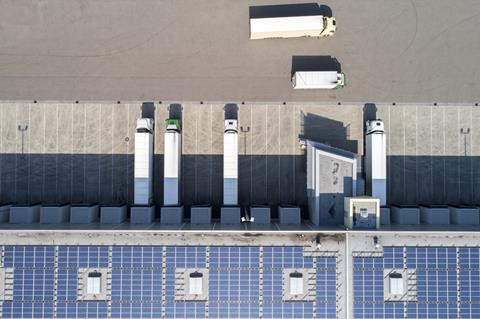
The retail industry accounts for 25% of global carbon emissions. That’s not surprising, given that retail businesses need a consistent and reliable source of power throughout their operations.
However, the sector regularly receives heavy criticism for not doing enough to reduce its carbon footprint and improve sustainability credentials.
Is this fair? Perhaps not, but research continues to show that increasing numbers of consumers are willing to pay a premium for sustainable brands. And over 50% of consumers are willing to change their shopping habits to reduce environmental impact.
So retailers, take note. Many of the initiatives implemented by other industries to reduce carbon emissions – particularly in Scope 3 – seem to be missed opportunities in the retail world.
Retailers have tended to focus on more immediate, consumer-driven concerns over carbon emissions and sustainability, such as product materials, reduced packaging and recycling. These are all things a consumer is likely to be aware of and they are easily demonstrated at point of sale or delivery.
Today, most retailers have now tackled what might be considered ‘low-hanging fruit’. Attentions should now turn to creating a more holistic approach. That means considering supply chain operations and identifying and implementing means of reducing carbon emissions across production, storage and logistics, as well as last mile and DTC sales techniques.
But what to focus on, and how do you know it will work?
A key priority is getting the right people in place. Many retailers rely on in-house legal teams to perform ESG horizon scanning more generally, which makes sense when considering the amount of regulation to contend with across the E, S and G. However, when it comes to implementing initiatives and getting buy-in across the business, the legal team may not be best placed.
Instead, consider creating a role purely focused on the organisation’s sustainability strategy, with remuneration tied to minimising environmental impact. This role can engage across the business and the supply chain, and marshal efforts to ensure progress is not just made, but recorded and reported to highlight green credentials to consumers without falling foul of greenwashing.
Another priority is getting the right energy. Lots of businesses have engaged energy procurement specialists to identify cost savings and increase energy efficiencies, but this may not directly support carbon reduction efforts if the procurement specialist doesn’t have a sustainable/renewable energy mandate.
Implementing software to monitor and improve efficiencies of HVAC, refrigeration and freezer systems can also be an effective method to reduce consumption, and therefore costs. These two methods of improving efficiency and thereby reducing consumption will undoubtedly have some impact on emissions. However, neither of these methods consider energy generation and whether the energy itself is from renewable sources.
A more effective avenue to reduce carbon emissions, while also reducing consumption-related costs, would be a more proximate energy generation method, such as solar photovoltaics (PVs). These allow a retailer to generate its own energy on the roofs and real estate within its portfolio, or possibly within its supply chain.
This opportunity is not unique to the retail industry but certainly one that plays to its strengths, considering the large volume of real estate that tends to lie within their operations and supply chains. This real estate could support, use and benefit from these systems.
PV equipment is often confused with solar panels, which absorb the sun’s energy and convert it into heat. PVs generate electricity and are often thought to be too expensive in terms of upfront investment. While PV systems certainly require a level of commitment, they’re worth careful investigation given their cheap run rate (in terms of maintenance, insurance and kWh consumption), the opportunity to sell electricity back to the grid and the slew of providers willing to offer energy guarantees.
By installing PV systems, retailers can not only reduce their emissions, increase sustainability and reduce costs, but also benefit from more favourable rates on debt finance linked to achieving sustainability goals. An initial ‘money-spender’ could very quickly become an impressive ‘money-saver’ for retailers.



















No comments yet